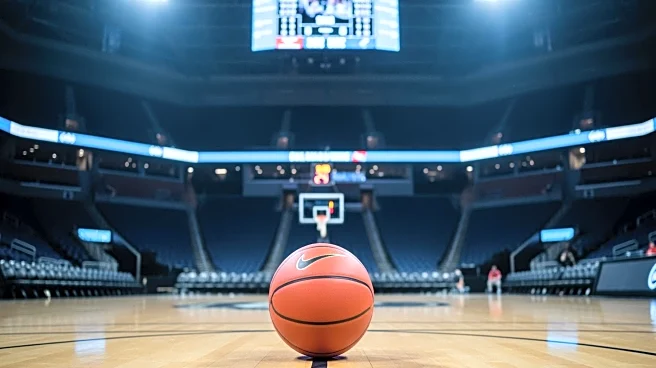What's Happening?
Michigan State coach Tom Izzo has expressed strong disapproval of the NCAA's recent decision to allow former NBA G League players to compete in Division I basketball. This decision has sparked controversy,
particularly with the eligibility of players like London Johnson and Thierry Darlan, who have spent years in the G League. Izzo criticized the NCAA for not consulting with coaches and for making decisions that could undermine the structure of college basketball. He highlighted concerns about the impact on high school seniors and the transparency of the NCAA's decision-making process.
Why It's Important?
The NCAA's decision to allow G League players to return to college basketball could have significant implications for the sport's structure and the future of amateurism. This move may blur the lines between professional and amateur athletes, affecting recruitment strategies and the competitive balance in college basketball. Coaches and players may face uncertainty regarding eligibility rules, potentially leading to legal challenges and changes in how college teams are built. The decision also raises questions about the NCAA's transparency and governance, which could impact its credibility and authority in the sports world.
What's Next?
The NCAA may need to address the concerns raised by coaches like Tom Izzo and clarify its policies regarding player eligibility. This situation could lead to further discussions and potential reforms in college basketball governance. Stakeholders, including coaches, players, and legal experts, might push for more transparency and consistency in NCAA decision-making. The impact on recruitment and team dynamics will be closely monitored, and the NCAA may face pressure to adapt its rules to maintain the integrity of college sports.
Beyond the Headlines
The NCAA's decision could have broader implications for the concept of amateurism in sports, challenging traditional views and potentially leading to a reevaluation of athlete compensation and eligibility. This development may influence other sports organizations and leagues, prompting them to reconsider their policies on player transitions between professional and amateur levels.










